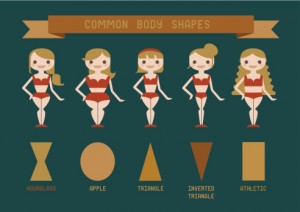Low GI Diet Plan
Many experts today are touting the benefits of a low GI diet plan. The glycemic index (GI) of a food is a measurement of how quickly it is converted into blood glucose by the body. A diet that consists of primarily high GI foods leads to obesity and diseases like type 2 diabetes. Low GI foods help regulate blood glucose levels and may help you lose weight because you feel full longer when following a low GI diet plan.
Quality not Quantity
When you follow a low GI diet plan, you are more focused on the quality of carbs you eat rather than the quantity. This is not necessarily a low carb diet although the diet does restrict refined or highly processed carbs. Healthy carbs that have a low glycemic index value can be eaten in unlimited amounts. You won't have to count calories or carbs but you will have to check the glycemic index value of all the foods you eat.
The Foundation
Unlike the USDA food pyramid that is based upon a foundation of grains, the glycemic index pyramid is based upon a foundation of fruits and vegetables. Raw vegetables should make up a large portion of your diet. You are encouraged to make at least 50% of each meal raw vegetables. If raw varieties are not available you should substitute frozen rather than canned. A low GI diet plan allows you to eat your fill of healthy vegetables and pushes grains to the top of the pyramid where they should be eaten sparingly. It should be noted that potatoes and corn are considered starches and not vegetables so these should not be eaten excessively.
Stay Balanced
The goal of a low GI diet plan is to keep blood glucose levels regulated throughout the day. This helps keep hunger at bay and is therapeutic for diabetics. To further this goal, you should eat a balanced meal that contains protein, fat, and carbohydrates. Further, eating protein along with a vegetable for a snack will help you feel full for a longer period of time. Plan to eat three meals a day and up to two snacks. Skipping meals causes your blood sugar to fluctuate and causes your appetite to increase.
Things to Avoid
Fresh is best even if you have to shop two to three times a week to keep stocked with food. Processed foods are full of sugar and refined grains and are generally high GI foods. Avoid eating at fast food restaurants and take a healthy lunch from home with you to work. Refined foods should be eliminated or eaten rarely. These cause blood sugar levels to quickly elevate and then crash. This causes you to feel hungry, tired, and irritable. Always choose whole grains and eat those sparingly. You should also control your beverages on a low GI diet plan. Water is the drink of choice; nonfat milk and seltzer water are also allowed. Soft drinks should be avoided. Juice should be consumed sparingly. Eat the whole fruit instead as it takes longer to convert to blood sugar than drinking straight juice.
Determining What to Eat
When you go on a low GI diet plan, you will need a list or chart to refer to. In general, you can keep in mind to focus on raw vegetables, lean meats, and beans. Specifically you will need to look up the GI value for each food when creating your menu. There are many places to find such a list. One place to look is in print books you can buy or check out from the library. You can also print lists from the internet or look up each food individually on nutritional data sites.
Benefits
A low GI diet plan may be able to help you lose weight quicker by keeping your blood sugar regulated and avoiding spikes and dips. When you lose weight you will have a whole host of health benefits that will improve your cardiovascular system and give you more energy so you will look better and feel better too.
-
Exercise to Lose Belly Fat – Try This
What’s the best exercise to lose belly fat? While most people th
-
On-line Weight Loss Packages: Exactly How They Work
If you’re fascinated about dropping pounds, you may have conside
-
Understanding Cholesterol Levels and Decrease the Risk of Heart Attacks and Strokes
Fact: • heart disease claims about ½ million lives in A
-
Looking for weight loss? Try Phentermine
Weight gain has proven itself as the most dangerous of health prob
-
Adding Seaweed to Your Diet Might Actually Help You to Lose Weight
Are you looking for new
-
9 Practical Ways To Lose Weight This Summer
- DON'T MISS
- Tips on Easiest Way to Lose Weight
- Importance of Self Motivation for Weight Loss
- Quickly Lose Weight With This Diet
- Good FoodBad Food Whats Left To Eat
- Learning To Love The Body You Have Is Crucial
- The Miracle of 100 Calories
- Fad diets no panacea for weight loss
- Environmentalists In Books And Movies
- Several Steps To Consume Fish Without danger.
- Benefits of Utilizing Easy Forex




